Catholic School Evangelisation
Remembering God To A Forgetful World
Catholic school evangelisation has never bee more important. The complexity of modern Catholic schools can make it easy to overlook the central aspects of our vocation and mission. As the world seems to convulse with so many political and cultural issues it can be easy to forget that our task is to ‘remember’ God to a world that seems to have amnesia. In today’s episode I discuss a powerful insight from professor Robert George of Princeton, a great quote from Cardinal Sarah and remind you that you need to drink more water.
Author
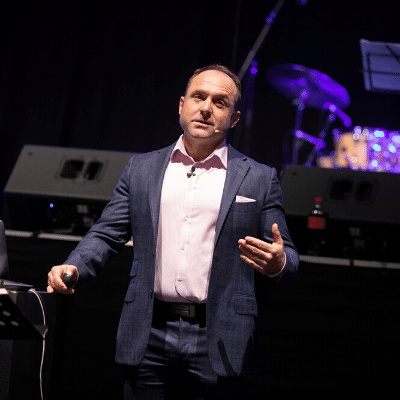
Jonathan Doyle
Jonathan Doyle is an international speaker, author, businessman and executive coach who has spoken around the world to more than 400,000 people on topics related to personal development, peak performance, leadership, Catholic school evangelisation, relationships and much more.
His recent keynote addresses include the NCEA National Convention in St. Louis Missouri to 10,000 delegates and he is a frequent keynote speaker in the US, Asia and Europe.
He is also the founder of an influential education and media business that delivers training content to hundreds of organisations and thousands of individuals around the world on a weekly basis.
Jonathan holds an undergraduate degree in education from the University of Canberra, a Masters Degree in Leadership and Management from the University of Newcastle and has also undertaken post-graduate study in philosophical anthropology.
He is the author of numerous books on relationships and peak performance and each day shares these same ideas with a large global audience via The Daily Podcast with Jonathan Doyle.
Finishing Strong is a loud and clear call for every young person to make the very best of their final years of school. Based on hundreds of seminars around the world to a huge number of students Jonathan Doyle offers powerful, practical advice that can make a major difference.
Each chapter offers inspiring stories, clear principles and actionable steps for identifying and moving forward in study, life, friendships and each key area of life.
Jonathan also includes journal questions and guided reflections at the end of each chapter to maximise learning and ensure the ideas and principles can be made real, personal and achievable.
If you want to help your child or students make the very best of their final years of high school then it;s time to help them finish strong!
TRANSCRIPT:
Catholic School Evangelisation:
Remembering God To A Forgetful World
Well, hey everybody. Jonathan Doyle with you for the Catholic Teacher daily podcast, which regular listeners know has not been very daily of late. Where have I been? Some of you have been asking. It’s just been an interesting time. I think the whole COVID thing and my life has slowed down a little. The normal travel schedule, which has been so central to my life for a long time, has stopped, which has been just really different. Many of you would know, I was due to speak at NCA in Baltimore, back in April, and that didn’t happen. And then it’s just an interesting season of life for me, just to have this kind of break. And the other thing I did was of course, something you would know and deleted all my social media accounts, everything. It’s kind of a process that had been in play, I think for a few years for me. And recently we had 2000 wonderful Catholic teachers from all over the world in our Facebook group, passionate Catholic teachers. And believe it or not, that account was deleted.
Facebook just literally wiped it out. Locked me completely out of Facebook. There was nothing I could do, no appeal process. And believe it or not, the answer was or what I was told was that it violated Facebook’s community standards. Now having built that group and just been a part of it, obviously from day one and having seen every single post, there was nothing ever remotely that could have been in a far distant universe construed as problematic or offensive. It was just totally encouraging stuff for Catholic teachers. So the growing realization that a lot of the social media companies do not have the best interests at heart of whole sections of the community led me slowly to that realization. And Twitter, I think very much as somebody, I had thousands of Twitter followers and it was just this growing realization that Twitter, I think, I personally have got to the place where I think it’s a genuine force for evil in the world. I really do.

Every Catholic teacher has a role to play.
I just think it just seems to create a complete echo chamber where people just have their biases reinforced. We seem to get the worst of everything there, so I deleted Twitter. Instagram, I just kind of felt was another sort of echo chamber. Where you start to live your life through, “What I’m doing right now, is it worth photographing?” So I prayed about it a lot, thought about it a lot. I know the counter argument from some people as “Well, it’s a ministry field. It’s a ministry field and you can bring gospel values to it.” I don’t think so. I’m just of the opinion increasingly that that is relatively naive. I think if something is essentially evil, how much can you cooperate with it? So that’s a personal opinion. I think some of you might find that to be strong language, but I’ve done it. I haven’t looked back.
And related to this, is also an idea from, I’ve quoted her before, a pastor called Christine Caine, an evangelical Protestant pastor. And she has this great line where she says, “If God wants you, he knows where to find you.” I always liked that, “If God wants you, he knows where to find you.” And so I think that I’m just going to do the podcast and if the podcast grows, that’s great. If it doesn’t, that’s God’s problem. So that’s kind of where I’ve got to with all this. So I think I’m going to reimagine the podcast a little bit. I want to share a few things I want to do. Obviously offer you some great spiritual encouragement in your role as Catholic teachers, but also an offer you some ongoing practical stuff. Catholic school evangelisation has never been more important and you guys are the sharp end of the spear.
So as many of you know, in my other incarnation, if I could use that term, in the other work that I do in motivation and corporate coaching, all that sort of stuff. Is to just provide a lot of practical stuff for people. So I want to just keep adding useful stuff to get you through on the practical side of your work as well. So from time to time, I want to just remind you of certain things that are going to help you flourish in your vocation. Because we’re physical and spiritual and cognitive beings, we have all these different aspects of ourselves that really coalesce into being able to discharge this ministry the best way we could. So I’m going to offer, I guess, three component parts. I’ll offer a daily quote that I’m sharing in the online, the email list that we have. And I’m going to share some practical stuff, and then I want to just share reflection.
So today the quote comes to us from the inimitable Cardinal Robert Sarah and it’s a great reminder of our work in Catholic school evangelisation. If you’re not familiar with Cardinal Sarah, he’s an African prelate, African Cardinal, just a massive straight shooter. I guess probably seen on the Orthodox side of things, but just a real straight shooter and his books have been wonderful. His book, he wrote a book about silence, which I love. And I’ve been reading his latest book called The Day Is Now Far Spent, which is just a reflection of all the challenges facing the world. And it’s interesting that I recently read Athanasius Schneider’s book as well. He’s another Bishop. He’s the Bishop of Kazakhstan. And it’s interesting how the two of them are pointing to the same phenomena that are causing such challenges for the world.
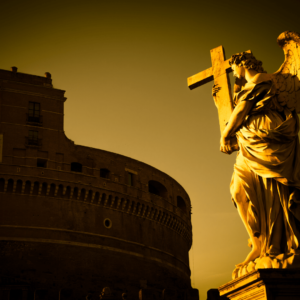
Remembering God To The World.
They would both point to something that we would call anthropocentrism. Anthropocentrism is a focus on the human person, on man, if I can use that heavily gendered word in this politically correct world. The focus on man as the center point of existence. So our ancestors had a very cosmological view of reality. I mean, God was at the center of the cosmos, the creator of the cosmos. And both the physical bodies, the universe, and also the human person existed within this cosmos that had been created. A lot of what modernity’s really done is located man at the center of everything. So they’re pointing to the problem being anthropocentrism, and the answer is a radical return to the worship and the right place of God in the created order in our own lives. I just think it’s common sense. I just think, I mean, look at us, right? I mean, look at us.
Look at us, the 20th century was the greatest bloodbath in human history. Tens of millions, hundreds of millions killed. It just seems to be that when we create a new political social system based around man at the center, it just doesn’t tend to go well, friends. It really doesn’t. So if we want to restore culture and we want to restore the world, then let’s begin by just doing the most obvious thing, which is putting God back at the center of our lives and of our relationships, our marriages, our parenting, our friendships, our social order. And just how do we do it? We do at one person at a time. So let’s begin. The quote that I wanted to share with you is from Cardinal Sarah, and it’s very simple. In his book he says this, “Christ never promised his faithful they would be in the majority. Christ never promised his faithful they would be in the majority.”
I just think that’s worth remembering, that we can often feel, “Well if God loves me, if I’m doing God’s will, I’d be happier and everyone would approve of me more.” Remember the life of the early church, it can be times of persecution. I think we’re experiencing that now. I think we’re starting to notice that the faith is under so much pressure. In Catholic education too, it can be increasingly hard for people just to really stand up and speak and share the faith. So remember, that if we’re not in the majority that’s okay. Christ never planned it that way. He talks about the sign of contradiction. Christ himself was the prophesy from Simeon to Mary, that Christ would be a sign of contradiction and would lead to the rising and the falling of many. So sometimes standing up for our faith, being courageous in the classroom with sharing that faith can be difficult.
All right. So look, changing gears now to the practical thing I want to offer you today. I know this is going to sound crazy jumping from deep theology and anthropocentrism to this practical strategy. I’m training so hard. Many of you follow my journey, know that I do a huge amount of training, so ultra marathon distance and stuff. So I have a really good coach that I work with very closely. Let me just remind you about the crucial nature of fluid intake for Catholic teachers or for everybody, but we’re talking about you guys, right? The slightest level of dehydration in any of us has really significant impacts. So since I’ve been training this hard, I’ve become really focused upon fluid intake. So if you’re not using something like a water bottle at work, you nearly need to. I just find that if you don’t have one, then you get cups of water here and there, or you grab a drink when you think about it.
But if you’ve got a full bottle of water, in Australia here, mines about a liter and a liter and a half. You want to be drinking at least three liters a day, and this is important. It’s a very simple thing to do. I know you do it a lot, so that… I’ve been [inaudible 00:09:26] a two hour ride this morning and I have a fair bit of coffee and then I get back on the hydration. So please, to be the teacher that God wants you to be, let’s get back on the hydration wagon, please really important. Now, are you doing it? So if you’re not, if you don’t have that bottle, do this for me. What’s the old saying? Never leave the scene of a decision without taking action. So make a note somewhere to jump online or to find one somewhere. Pick one up on the way home today. Get yourself that bottle and get that fluid intake up.
Okay. Last thing I want to do is share with you something just really quite profound. If you’re not getting the CERC bulletin, I really recommend it. It’s the Catholic Education Resource Center and it’s a great tool for Catholic school evangelisation. I have been getting their bulletin maybe for a decade at least. They do just a great job of bringing together, once a week, just a great load of articles and resources on Catholic education. You can find them at catholiceducation.org. Catholiceducation.org, and sign up to their email bulletin, it really is… I know we get a lot of spam, but it’s really worth signing up to. So do that, check out catholiceducation.org. Now let’s begin. The article that I came across, Robert P. George, some of you would know is a professor of jurisprudence at Princeton and a wonderful Catholic man who’s written for many, many years, a very significant public intellectual.
So I read an article here on the CERC bulletin by Robert George. And it’s about a lot of what’s happening in our world at the moment. And if you want to read it, I think it’s called Solzhenitsyn’s Prophecy. Solzhenitsyn’s Prophecy, it’s originally published in First Things, but you can find it on CERC. And I just want to read you the last paragraph, because the last paragraph really spoke to me. And the way that I do this podcast is I just asked the Holy spirit each day to prompt and guide me with things that are useful and might help people. And so I want you to listen carefully to this. I’ll set it up for you. Basically, he’s telling us a lot of what I’m saying here in this podcast is that the world and the faith is in a challenging place, so what do we do?
So he’s talking about what we’ve lost, the cultural memory, the central role of God, but listen to what he says. Here we go:
“But what has been forgotten may be remembered. What has fallen into decay can be renewed. What has been lost can be rediscovered. But for these things to happen, those who remember God and sincerely seek to do his will must look to him for the grace necessary to be his courageous and faithful witnesses.” To be in the words of another modern prophet Pope, John Paul II, “Signs of contradiction to a world that has forgotten God.” This, allow me humbly to say, is your mission. You must remember God to a world that has forgotten him. By the example of your lives, as well as by the words of your mouths, you must be the salt and light that repairs what is broken and points the way to true freedom for those who have fallen into forms of slavery that are all the more abject for masquerading as liberation.”
Catholic School Evangelisation
So Jonathan back with you here, I just want to repeat this line to it that really struck me. Listen to this line he says here, “You must remember God to a world that has forgotten him.” And he says, “This is your mission. You must remember God to a world that has forgotten him.” So I’m going to just say this really simply. I believe in every cell of my being that the call upon your life as a Catholic educator, is to remember God to young people. They’re born into a cultural moment where God is being forgotten and abandoned and rejected and despised and spat upon and scourged. And your job, and that’s why Cardinal Sarah said, you may not be in the majority for a while, is to remember God to a world that’s forgotten him. What a beautiful and courageous thing it is that you do.
So that’s my word of encouragement for you today. Go back into that classroom and remember God to a world that has forgotten him. This is the essence of Catholic school evangelisation. Remember God to the people in your staff room. Remember God to the parents that you work with. Just little things. How do you do it? Moments of prayer, moments of silence. Even little things now, like as a family, we on my phone, we sit down for dinner every night and I put some good jazz on, we like a bit of music while we eat. But I put it on pause, and just before we eat, we do the gospel of the day. We just read this. And as a father, I’m like, “I want my family, I want my kids each day, just to remember, to hear the word of God spoken into their lives.” Every night do they go, “Wow, that was a profound spiritual experience. Thank you so much for sharing it with me?” No they don’t, at all.
But I just refuse to forget God, so I build my life around this. I pray the divine office in the morning. As much as it’s practical, I try to get to message day, I try to get to adoration. I read spiritual stuff. I try and constantly stay in prayer throughout the day, praying for people. And I get it wrong and I don’t do it perfectly. But as I get older and I look at what’s unfolding in the world, I think my mission and yours is simply to remember God to a world that has forgotten him. This really is the essence of Catholic school evangelisation. All right, friends, guess what? There’s nowhere to follow me on social media, but come and find me onecatholicteacher.com. And if you’re hearing this somewhere else, all you got to do is just look up the Catholic Teacher daily podcast on any podcast app and subscribe, and you can follow me there. And let’s just build it on the podcasts and see what happens.
Onecatholicteacher.com, there’s a whole bunch of stuff there. You can follow up as the restrictions lift in the months ahead, God willing. If you want to book me again and have me back out to speak, you can do that. But God bless you friends, I’m just going to pray for you. Father, I thank you for every Catholic teacher listening right now. I pray your blessing upon the ministry. Console them, strengthen them, bless them and bless their families and their students in Jesus name. Amen. All right, friends, go and have a big glass of water, big bottle of water. My name Jonathan Doyle. This has been The Catholic Teacher daily podcast, and I’m going to have another message for you tomorrow.
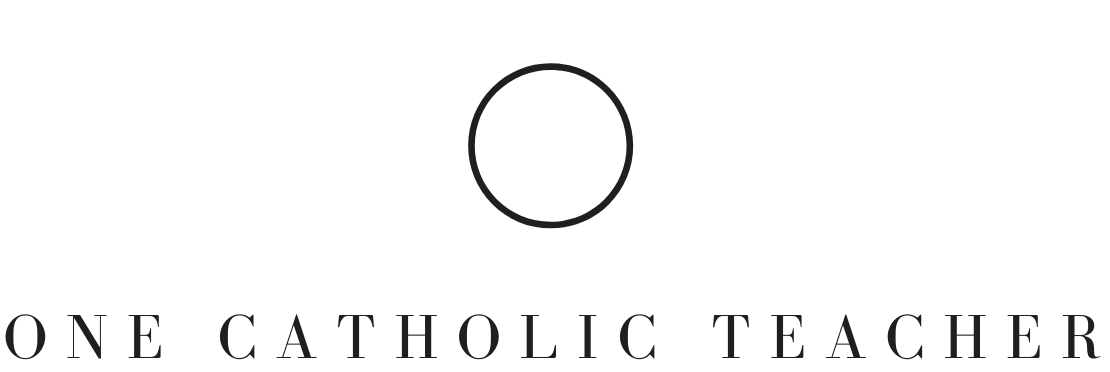














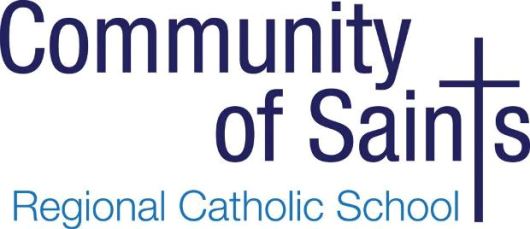

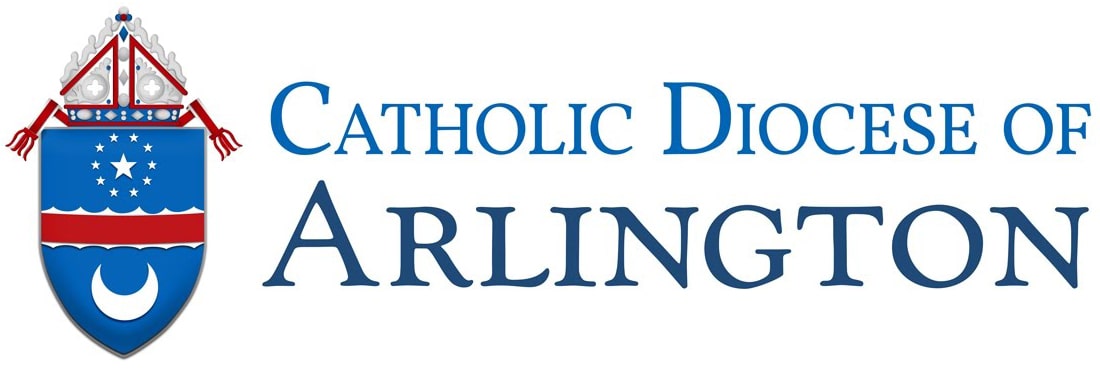
0 Comments